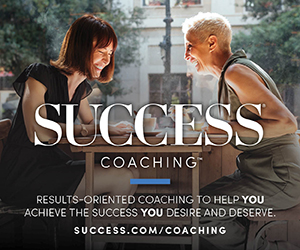Sam Sidney and Anna Baglaneas Eves are two entrepreneurs who started businesses by following their passions. Here, they share their business stories and offer advice for other new entrepreneurs.
Sam Sidney
Sam Sidney began making portraits out of felt scraps with her four kids during the pandemic. After receiving her first commission—”a high school friend who asked [her] to make nine famous musicians,” according to an interview with Charleston magazine—she is now pulling in anywhere from $125 to $575 for each of her original felt artworks. On her website, she also offers prints, mugs, stickers and more.
“I was an art major, I have no business experience at all, but I feel like the thing that really helped me was saying yes to everything—but especially saying yes to everything that sounds fun,” Sidney says. “The whole thing just feels very organic, and I’m just kind of pouring my heart into it and just going with it.”
What was a challenge that took a while to navigate?
Sam Sidney: Trying to figure out what I need to do and what I can get help with. That’s a huge key to success—even in life, not just business. The two things that only I can do are make the felt originals and post them on Instagram, because I want my voice to be authentic. Everything else I can outsource and get help with. Maybe my kids can help me pack up orders for my website, maybe I can get the packages picked up.
What proved pivotal when starting out?
SS: The whole thing feels very organic, and I’m just kind of pouring my heart into it and just going with it. Everything just keeps rolling into other opportunities, and I have the mentality that if all of this stopped tomorrow, that’s OK, too. I’m not putting pressure on myself, but just riding the wave and seeing what happens next. It didn’t start because I was trying to make a business. It started because I wanted to do art projects with my kids and someone wanted to commission one.
What were the first steps to get started?
SS: I would basically do a piece, post it on Instagram, and then I decided to do one piece every day. And I’d slowly be like, “What national holiday is today?” or “What celebrity can I do?” It’d be National Donut Day, and I’d post a felt depicting donuts, and then someone would say, “I want to commission my favorite sandwich.” I used to send my pieces unframed and then started framing them. And then I had to set up a website to sell my items. It was almost like the book, If You Give a Mouse a Cookie.
What advice would you give to other new entrepreneurs?
SS: I feel like the success I’ve had so far is that I’m disciplined and organized. I treat it as a job. I love to cross things off the list. But this weekend, I told myself that I needed to be OK with ongoing to-dos. I feel like these are kind of my life rules, but it’s being organized, having fun and just putting your whole heart into something. I can’t believe people have stuck around for this long, and I just feel like I’m going to do this with everything I have.
Cape Ann Sea Salt Co.
Cape Ann Sea Salt Co. is an artisanal sea salt company based in Rockport, on Cape Ann, Massachusetts. It had humble beginnings. In 2020, Anna Baglaneas Eves began collecting ocean water, filtering it and evaporating it in a greenhouse in her backyard. The salt is thus solar-dried, fossil fuel-free and packaged in recyclable and/or reusable jars. But since starting out, she estimates her business sales have grown by 400%.
“[My interest] started in Paris in my 20s,” Eves says. “I was in a boulangerie getting bread, and I picked up a bottle of French Grey salt, and I was like, ‘What is this? There’s something other than Morton Salt?’”
What was a challenge that took a while to navigate?
Anna Baglaneas Eves: My biggest challenge was getting out of my own way. Out of all my foodie friends, I would have been voted the least likely to run a food business. Even though it was clear from the very first farmers market that I sold my salt at that I had a really good product and people loved it, I still had self-doubt. I’m now two and a half years in, and it’s getting better.
Now when I’m uncertain about some aspect of running a food business, I just educate myself and move on. I don’t let it hold me back. I just use that insecurity to make my business and product better. I certainly know that I don’t know everything, and so I’m always open to learning and growing. I think that’s a good thing.
What proved pivotal when starting out?
AE: Understanding how to build a brand is key. You can have a great product, but if people aren’t interested in buying it, then it doesn’t matter how great it is. You have to understand marketing, branding and how to reach people—or hire people who know those things.
My salt jars are really well thought-out and look really nice, and so people like to have them in their kitchens and give them as gifts, which was a deliberate strategy. I have been told by several retailers that they chose my salt over a competitor’s product because they liked my packaging and presentation. In other words, they liked my branding.
What were the first steps to get started?
AE: I love salt, sea salt especially. And living by the ocean it was sort of inevitable that I would try to make it. I launched the company in March 2020, and part of my obsession was watching and reading about salt and salt-making techniques. I’d watch YouTube videos and read books about ancient ways of making salt, which is how I landed on a solar evaporation method. It was an idea percolating for years, and I just never had the time to devote to it.
My first steps involved making sure I had a good, quality product. It only takes one bad batch to lose a customer, so don’t be afraid to throw out imperfect batches. Once you know you have a product you can take to market, you have the unglamorous tasks of setting up a business and getting all the proper permits. Next, you have to market on social media and in local newspapers and get your product in front of people. I started out by doing farmers markets and other face-to-face events to build a strong base of repeat customers. Interest in my salt grew from there.
What advice would you give to other new entrepreneurs?
AE: First and foremost, make sure your product is a quality product that you are proud to sell. If you can’t get behind your own product, don’t expect other people to either. Build a solid foundation even if it means growing more slowly. That way, when you loosen up on the reins, you can keep up with the demand and still have a consistent product.
Also, don’t be afraid to pivot in order to reach more customers. In my case, adding multiple price points helped with initial sales and led to repeat customers.
Finally, it’s OK to start small. Don’t think that you have to pour tons of money into your business to get started. I started my business with a small personal investment, and then all business growth to date has been generated by profits from sales. I have a five-year plan to continue to grow in this way. Then, in year five, I will look for a business loan for the next phase of the business if I have to.
(Answers have been edited for clarity.)
Photo by Dragana Gordic/Shutterstock



